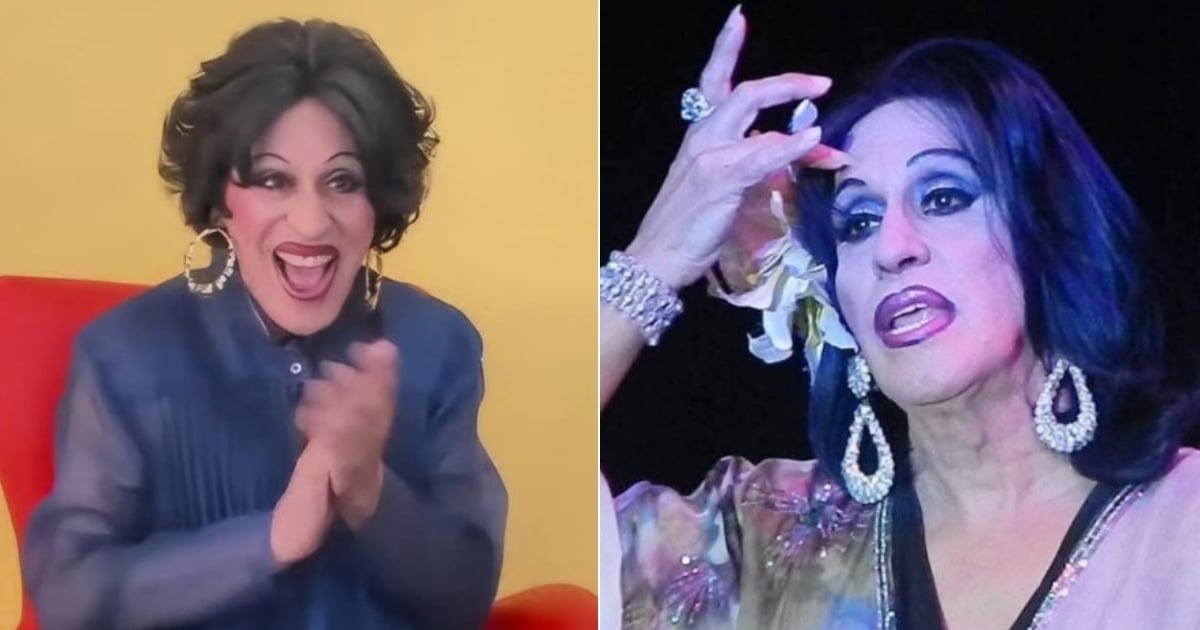The Cuban artistic community in Miami is mourning the loss of "Mariloly" (born Danilo Domínguez), one of the most iconic figures in the world of drag performance while in exile. According to reports from news outlets, citing close friends and associates, Mariloly passed away this Sunday at a rehabilitation center in South Florida. After suffering a fall, Domínguez was hospitalized, and his health rapidly declined in the following weeks. Those who visited him in his final days described that he barely recognized his companions.
"I always wanted to be an artist, and Miami gave me the opportunity to take the stage," Mariloly stated in an interview with journalist Daysi Ballmajó. During the same interview, he revealed that his father was imprisoned as a political prisoner in 1962, leaving him, his mother, and his brother in a precarious situation. Additionally, in Cuba, he endured years of persecution due to his sexual orientation. He recounted being detained by the police for hours, who would tell him, "You need to walk properly, not the way you walk because that's not how a man walks." "They wanted me to come out with a mustache and a cigar, and that was never going to happen," Mariloly expressed.
In 1980, amid the Mariel Boatlift, Danilo arrived at a police station dressed as a woman, declaring his desire to leave. When asked for his name, he responded, "Helen of Troy." Thus, he arrived in Miami, where he transformed into "Mariloly."
From Oppression to Stardom in Miami
Once in Miami, Mariloly solidified her presence in the city's top theaters and nightclubs, earning admiration from the Cuban exile community and the LGBTQ+ scene. Beyond her success in cabaret, her talent extended to theatrical productions, local television, and even opera groups, showcasing her versatility.
"In Cuba, she left behind a trail of humiliation and discrimination instilled by Fidel Castro's Communism, where his homophobic speeches included statements like, 'In Cuba, these Degenerations do not change,' targeting the Gay Community of the Caribbean island," recalled journalist Yosmany Mayeta while commenting on her passing.
Mariloly's legacy in Miami's drag and comedy scene runs deep. She became a mentor and icon for a new generation of trans and drag artists, recognized as a pioneer of Cuban drag in exile.
Tribute from Alexis Valdés
Cuban comedian and actor Alexis Valdés publicly expressed his sorrow over Mariloly's passing, highlighting her brilliance and significant contribution to comedy in Miami. "I've been told that Mariloly has left us. What a great sorrow and a tremendous loss for comedy in the city of Miami. A person endowed with immense charm and energy, with a unique ability to improvise and play with the audience," Valdés wrote on his social media.
The comedian fondly recalled the first time he saw Mariloly perform on stage. "I first saw her at Ashé. I was blown away. I hadn't seen anyone do anything like that since the days of Juana Bacallao. Her stage presence and the laughter she provoked were extraordinary," he wrote in his touching tribute.
Valdés also emphasized the strength and skill of the artist, honed "through many nights of theater and cabaret," during a time without social media, when talent had to shine directly before the audience. "She was a master at that. On several occasions, I invited her to work on sketches for my show, and we would laugh ourselves silly," he added.
"Thank you for the laughter and charm, Mariloly. The world will be less entertaining without you," Valdés concluded with affection and recognition.
Understanding Mariloly's Impact and Legacy
Who was Mariloly?
Mariloly, born Danilo Domínguez, was a prominent figure in the Cuban drag scene in Miami. Known for her unique performances and resilience, she became an icon for the LGBTQ+ community and a mentor for future artists.
What challenges did Mariloly face in Cuba?
In Cuba, Mariloly faced significant persecution due to her sexual orientation, enduring police harassment and societal discrimination under the Communist regime.
How did Mariloly contribute to Miami's art scene?
In Miami, Mariloly became a celebrated performer in theaters and nightclubs, contributing to the cultural richness of the Cuban exile community and the broader LGBTQ+ scene.
What was Alexis Valdés' reaction to Mariloly's passing?
Alexis Valdés expressed deep sorrow over Mariloly's passing, praising her humor, charm, and the significant impact she had on comedy in Miami.
